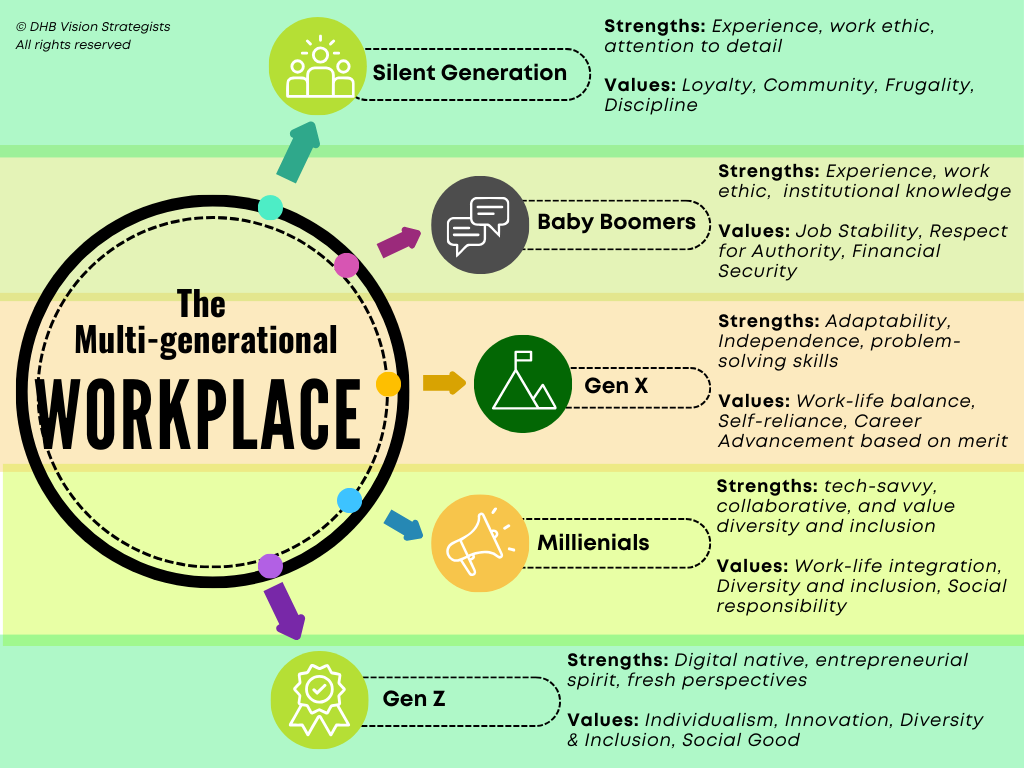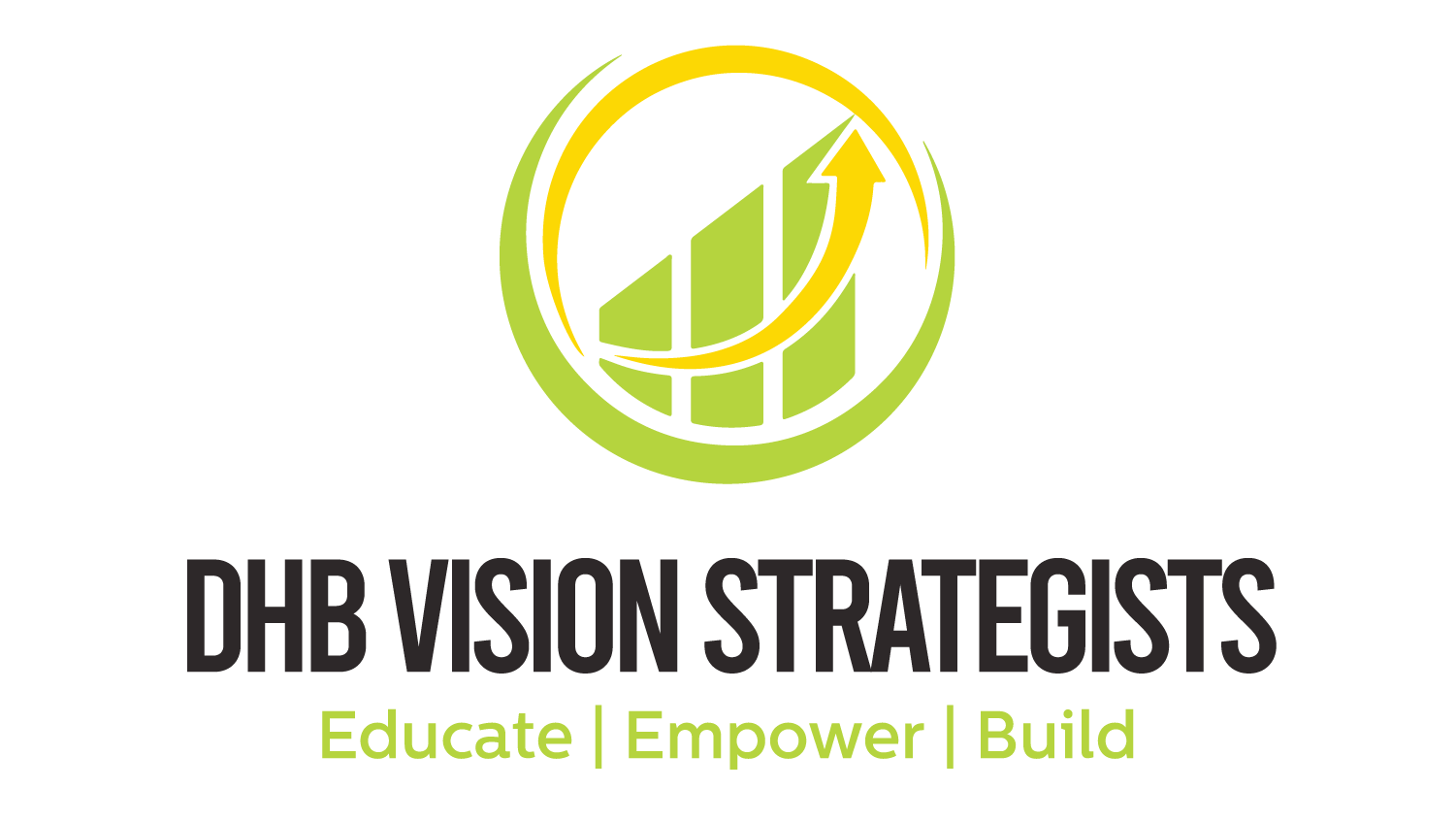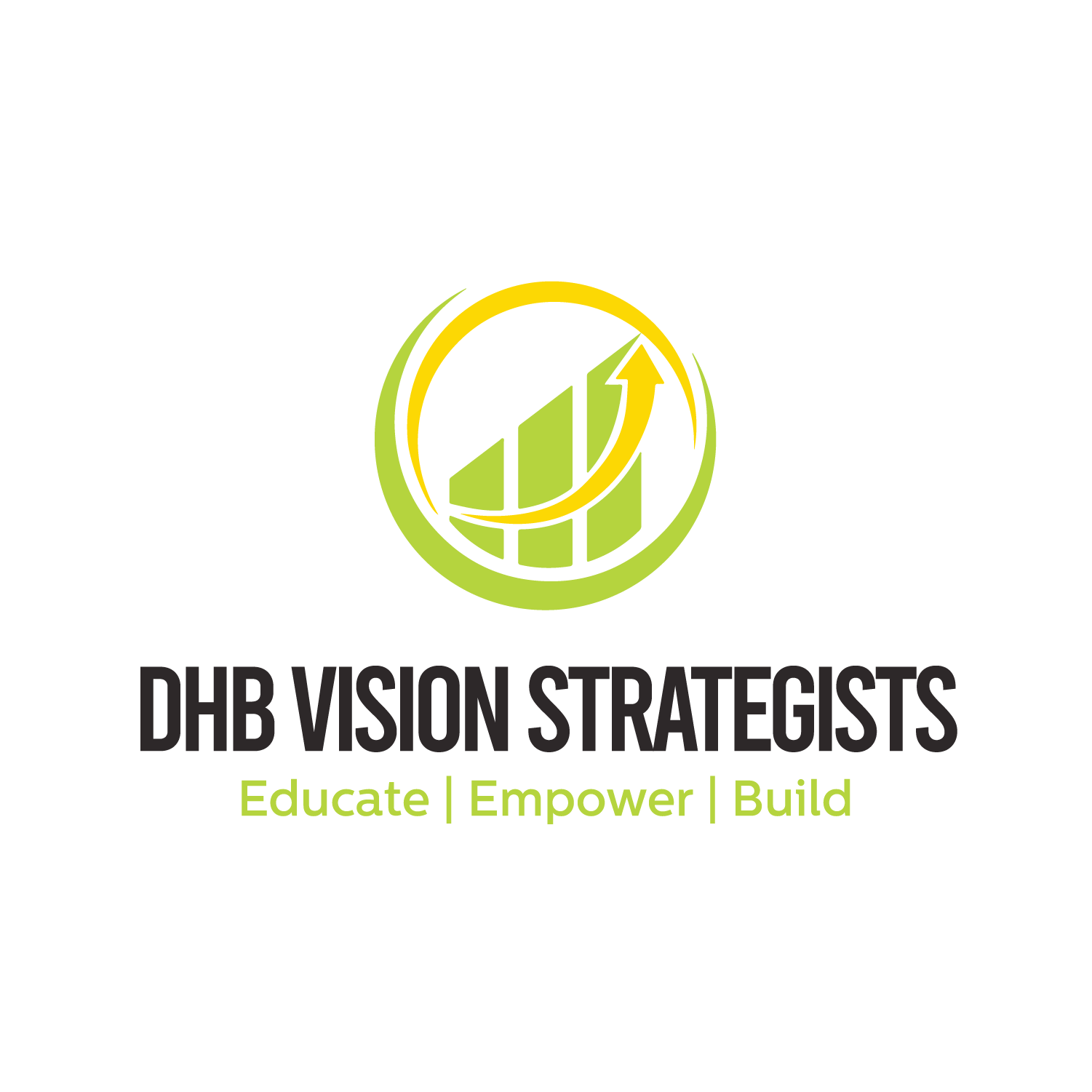Navigating Multigenerational Workforce In The Caribbean
As the Caribbean workforce continues to evolve, employers face an unprecedented challenge – managing a multigenerational workplace spanning five distinct generations. From the seasoned Traditionalists to the tech-savvy Generation Z, each cohort brings a unique set of values, work styles, and expectations to the office. Understanding and leveraging these generational differences is no longer a luxury but a necessity for organizations seeking to thrive in today’s dynamic business landscape.
General Overview of The Generations
Traditionalists, born between 1928 and 1945, are known for their loyalty, discipline, and respect for authority. They value hard work, delayed gratification, and a top-down management approach. In contrast, Baby Boomers (1946-1964) are often described as ambitious, competitive, and driven, with a strong focus on personal growth and achievement. On the other hand, Generation X (1965-1980) is characterized by its independence, scepticism, and work-life balance.
Millennials (1981-1996), the largest generation in the Caribbean workforce, are often praised for their entrepreneurial spirit, social consciousness, and desire for purpose-driven work. They value work-life integration, continuous feedback, and opportunities for professional development. Lastly, the emerging Generation Z (21997-2012) is known for its technological savvy, global mindset, and emphasis on diversity, equity, and inclusion.

Challenges Leaders Face in Managing a Multigenerational Workforce
As the workforce continues to evolve, with employees spanning multiple generations, leaders and managers are facing unprecedented challenges. These affect their ability to effectively manage their teams. From navigating communication gaps to addressing varying work styles and expectations, leading a multigenerational workforce requires a nuanced approach. It’s an approach that acknowledges and leverages the unique strengths of each generation.
1. Bridging the Communication Gap
One of the primary challenges that leaders face is bridging the communication divide between generations. Baby Boomers and Traditionalists may prefer face-to-face interactions and formal communication, while Millennials and Gen Z are more comfortable with digital platforms and informal exchanges. This disconnect can lead to misunderstandings, frustrations, and ineffective collaboration.
2. Mismatch of Value Systems
Each generation brings its own set of values, priorities, and expectations to the workplace. Traditionalists and Baby Boomers often prioritize loyalty, hard work, and respect for authority. Meanwhile, Millennials and Gen Z place a greater emphasis on work-life balance, flexibility, and purpose-driven work[3]. Reconciling these differences and creating an environment where everyone feels valued and motivated can be a significant challenge for leaders.
Another obstacle managers face is adapting their leadership style to cater to their team members’ diverse needs and preferences. A one-size-fits-all approach is no longer effective in today’s multigenerational workplace. Leaders must be able to adjust their communication style, feedback mechanisms, and recognition strategies to resonate with each generation. For example, Baby Boomers may respond better to formal performance reviews and public recognition, while Millennials thrive on regular feedback and opportunities for growth and development. Failing to recognize and accommodate these differences can lead to disengagement, resentment, and a lack of productivity.
3. Unconscious Bias And Stereotypes
Leaders must proactively address age-related stereotypes and biases within their teams. Negative perceptions such as older workers being resistant to change or younger workers lacking experience, can create a toxic work environment and hinder collaboration. Leaders must actively challenge these stereotypes, promote mutual respect, and foster a culture of inclusivity.

The Consequences of Ignoring The Dynamics of a Multigenerational Workforce
When managers and leaders fail to acknowledge and address the complexities of leading a multigenerational team, they run the risk of facing several outcomes:
- Increased Turnover: Neglecting the unique needs and perspectives of different generations in the workplace can lead to employee dissatisfaction and disengagement. This, in turn, may result in higher turnover rates as employees seek environments that better understand and accommodate their diverse needs.
- Reduced Employee Engagement: Failing to address the dynamics of a multigenerational team can negatively impact employee engagement. When employees feel that their voices are not heard or their concerns are not valued, their motivation and commitment to the organization can diminish. Such a dynamic may lead to decreased productivity and innovation.
- Reduced Productivity: A lack of attention to the complexities of managing a multigenerational workforce may result in reduced overall productivity. When different generations are not effectively integrated and managed, it can lead to communication breakdowns, misunderstandings, and inefficiencies. This may hinder the team’s ability to collaborate and perform at its best. Ultimately, this impacts the organization’s bottom line and competitive edge.
The way forward
For the first time in the Caribbean workplace, we cannot dismiss the importance of leadership skills and ability in the persons who hold management positions. You can no longer get through by simply “managing” your human resources. You have to learn how to lead your team. Leadership is the keep to accessing the true potential and benefits of the new paradigm of the multigenerational workforce.
To find out how to do this, check out this article: https://dhbstrategy.com/multigenerational-teams-caribbean/








